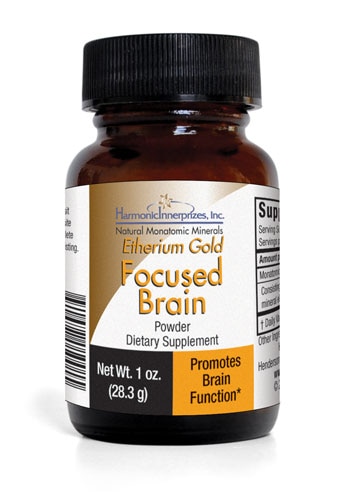Famed coach Nick Saban once said that one’s character is the “accumulation of your thoughts, habits and priorities on a day-t0-day basis.”
To which we say, well-said—and widely applicable at that, especially when it comes to brain health.
Meaning, our cognitive performance—particularly our memory—maintains equilibrium and can even improve with the choices we make on a daily, even hourly basis. The variety of vegetables we eat, the number of hours we sleep—even how we take care of our teeth—have an enormous impact on the agility of our brain, now and in the future.
Here are 5 things you can start doing today to improve your overall recall tomorrow:
1. Alter your routine
We’re all creatures of comfort and most of us find peace of mind in our quotidian rituals, whether it’s running the same route after work every night or preparing our morning eggs in the same fashion, Monday through Sunday.
And yet, research demonstrates that we do our brain a major disservice by never wavering from our routine. “Neglect is the one area (of your life) you do have the ability to change,” Psychology Today reminds us. “If you do the same thing every day in the same way, even as small as how you scramble your eggs, eventually you lose neural connections.”
With that in mind, get in the habit of getting out of your habit—and do one thing a day in the name of this. Always take the same way home from the office? Try an alternative route (and get to know your town better by doing so). Jumping on the treadmill your usual form of exercise? Check out a class at your local gym—or head out into nature for a hike—instead. Or, try your hand at making a quiche instead of scrambling, and eat your salad with your chopsticks.
The point is, keep stretching your brain in ways that are doable on a daily basis. (Need more motivation? Harvard psychologist and author of Your Creative Brain Shelley H. Carson believes that “mixing things up and even allowing yourself to become distracted can be an important cognitive tool,” Quartz reports.)
2. Sit up straight
“Tech-neck” has become part of our vernacular for a reason: many if not most of us spend a solid portion of our day in front of one or all of our devices—so much so, San Francisco State University professor Dr. Erik Peper calls our carriage the iHunch or iPosture. But not only can tech-neck and poor posture in general do a number on our health and alignment, it can also impair our memory.
“Peper discovered body posture can affect the recall of positive or negative memories,” says Medical Daily. “When sitting in a collapsed position and looking downward, participants in a study found it much easier to recall hopeless, helpless, powerless, and negative memories, than empowering, positive memories.” What’s more, an upright position strengthens memory “because sitting up straight helps increase blood flow and oxygen to the brain, and according to some accounts, by up to 40 percent.” Heed your mom’s advice, then, and sit up straight (and bring that device closer to your nose while you’re at it).
3. Floss your teeth
Brushing your teeth is probably well, well-ingrained into your daily routine, but if flossing isn’t, consider making it a top priority.
Why? “The plague between teeth can cause an immune reaction that attacks arteries, which then can’t deliver vital nutrients to brain cells,” says Dr. Michael Roizen, co-author of YOU—The Owner’s Manual: An Insider’s Guide to the Body that Will Make You Healthier and Younger. What’s more, scientists have found a link between gum disease and cognitive decline, which flossing can help prevent, in that it gets at least four times deeper into gums than brushing.
Who knew that something so simple, fast, and inexpensive could be so critical? (There’s the car keys.)
4. Eat an apple
An apple a day might keep the doctor away after all—at least the brain doctor:
“Apples have just the right dose of antioxidants to raise levels of acetylcholine, a neurotransmitter that’s essential to memory and tends to decline with age,” says director of the University of Massachusetts Lowell Center for Cellular Neurobiology and Neurodegeneration Research Tom Shea, PhD. Can’t find a fresh apple? Drink eight ounces of 100% apple juice instead: it, too, will protect your brain from free radical damage and naturally encourage a more robust memory.
5. Rev it up
The pluses of physical exercise are eminently familiar: activity bolsters our energy, wards off weight gain and even improves our sex life and ability to remember our partner’s second-cousin’s name.
That clarity of mind isn’t short-lived, either: According to Harvard Health, “exercise changes the brain in ways that protect memory and thinking skills.” Pointing to a study out of British Columbia, scientists discovered that regular aerobic exercise (swimming, dancing, surfing, or anything that “gets your heart and your sweat glands pumping”) boosts brain volume, particularly in the hippocampus—that region of your thinker that’s responsible for memory and learning.
“The benefits of exercise come directly from its ability to reduce insulin resistance, reduce inflammation, and stimulate the release of growth factors—chemicals in the brain that affect the health of brain cells, the growth of new blood vessels in the brain, and even the abundance and survival of new brain cells.”
Indirectly, exercise—including old-fashioned walking—organically supports a better night’s sleep and a happier disposition, both of which are key to cognitive well-being. In other words, are you on the trail yet?




